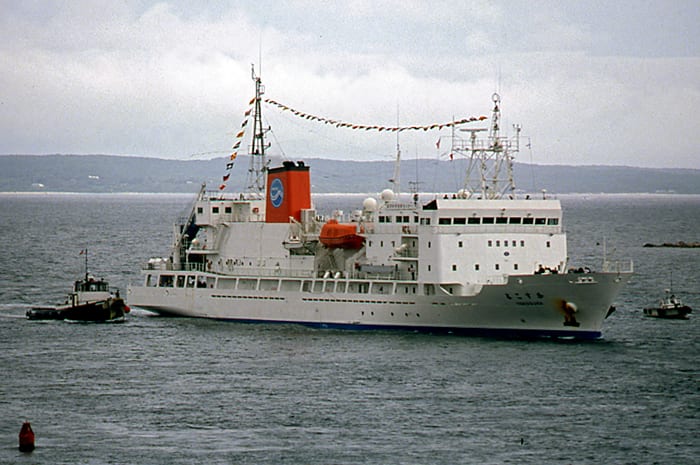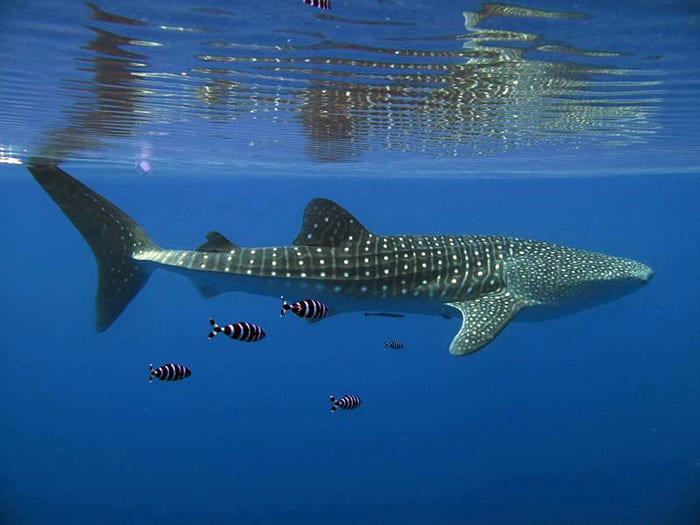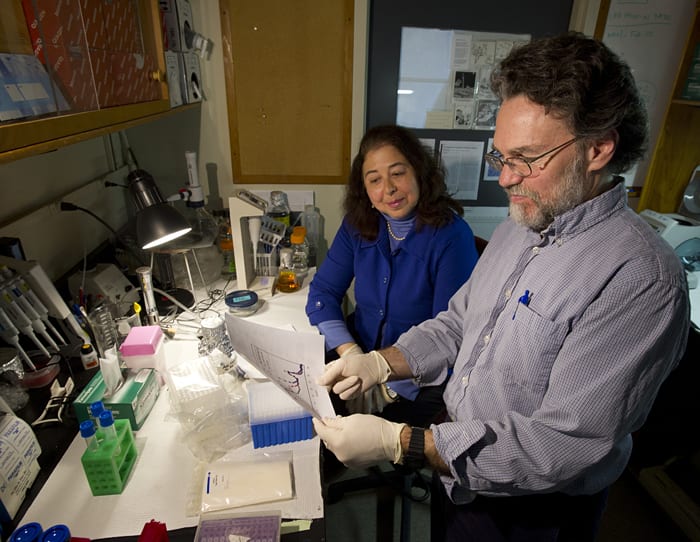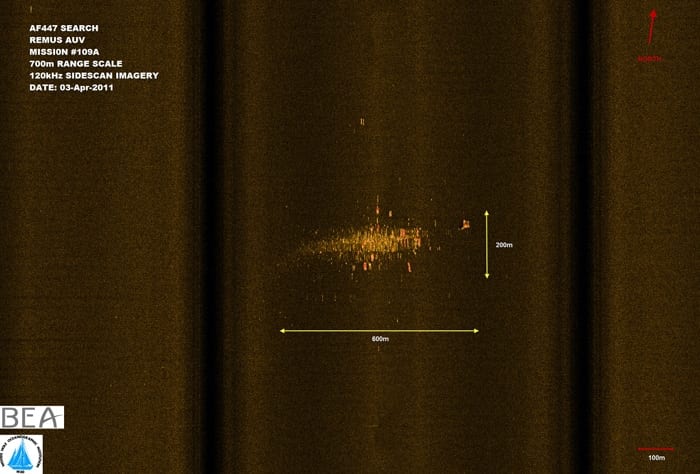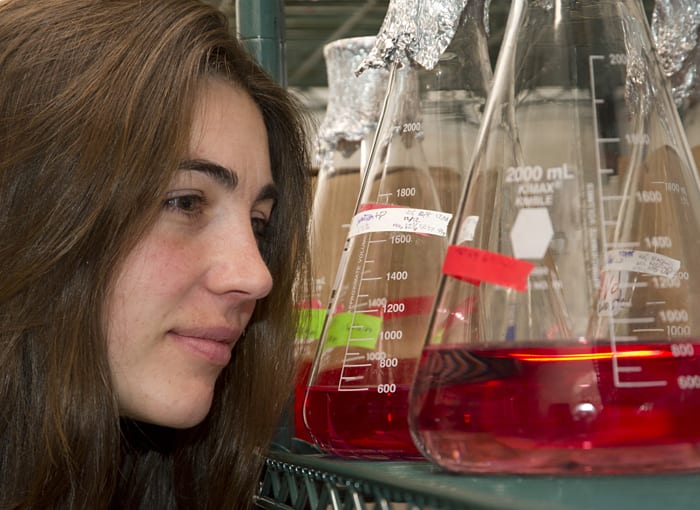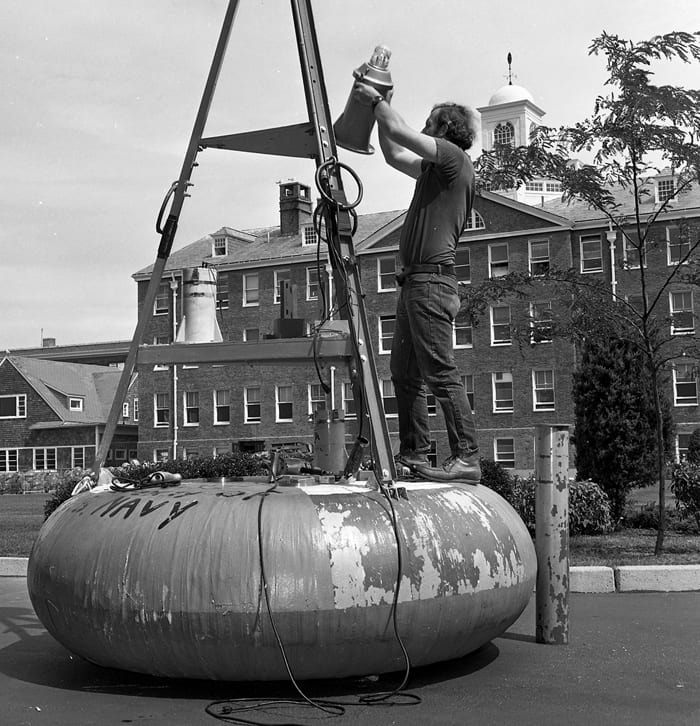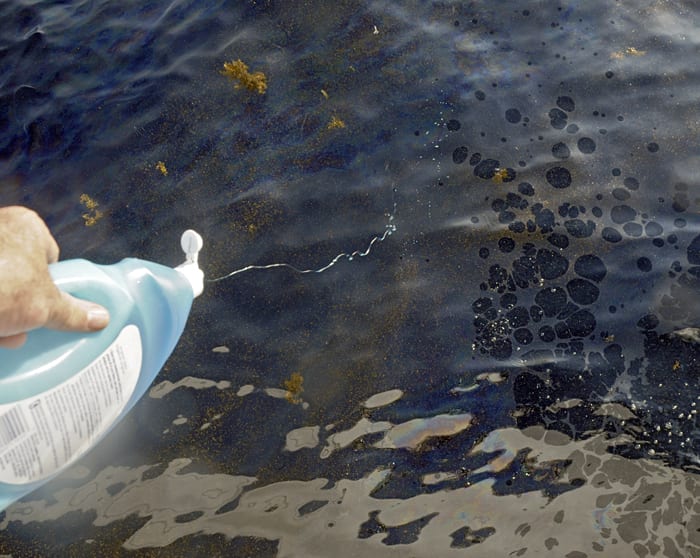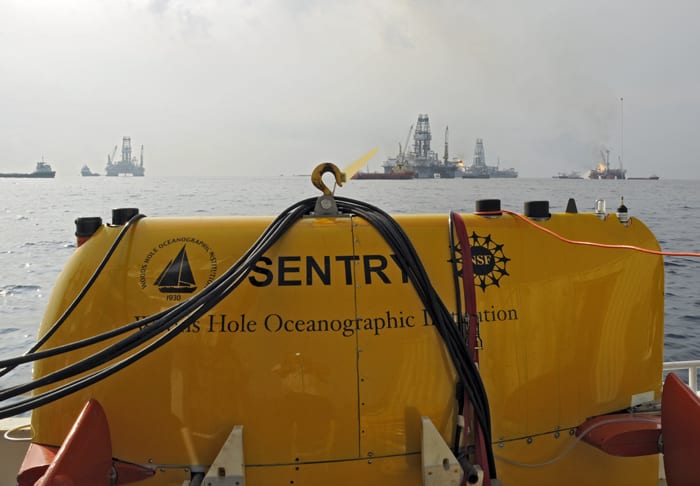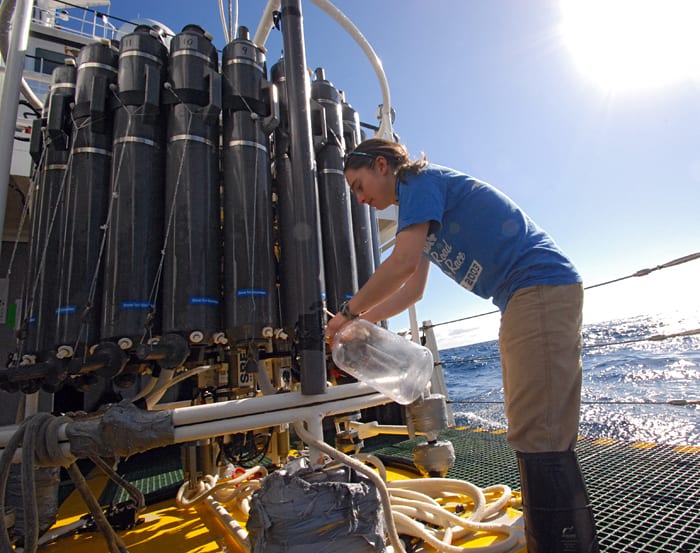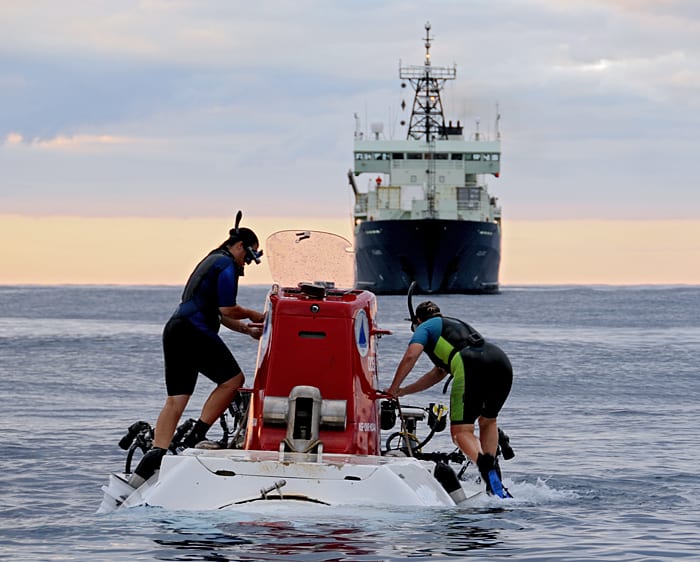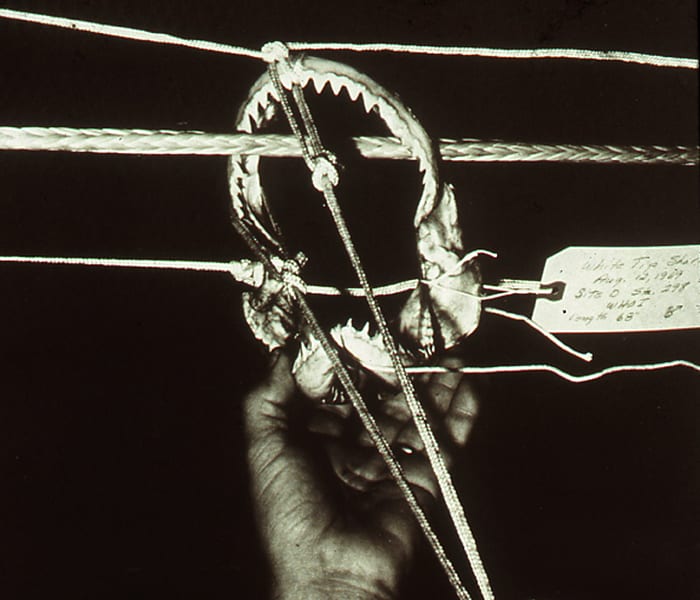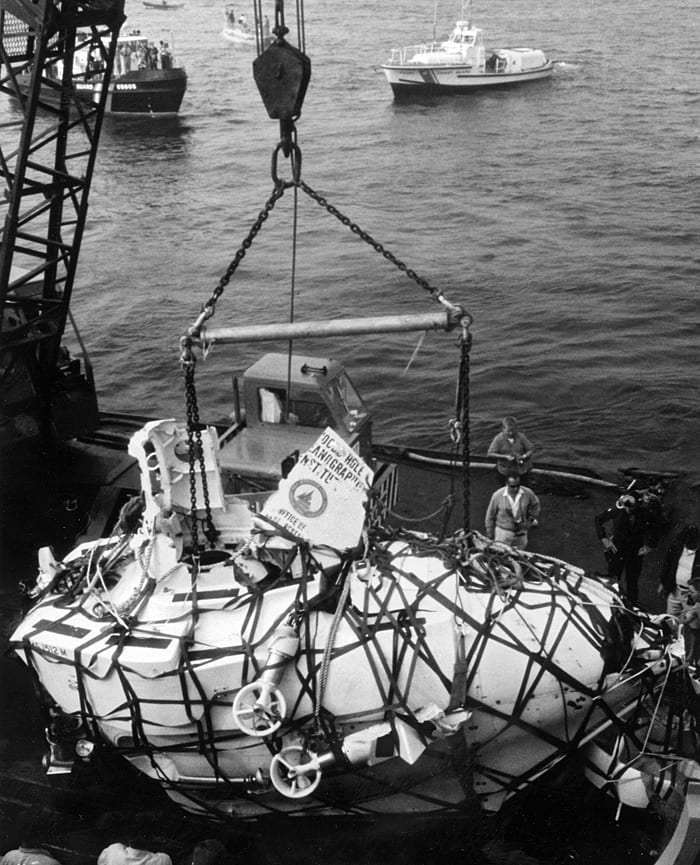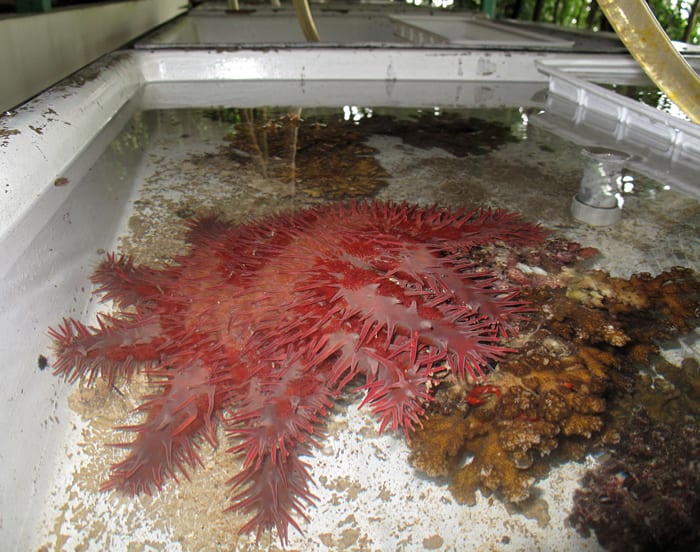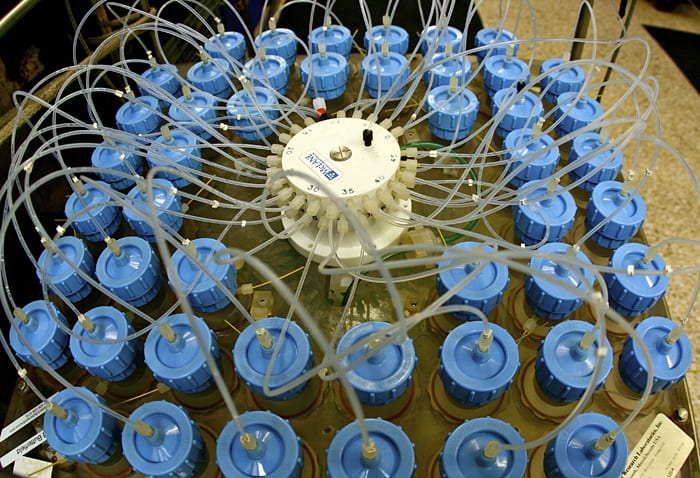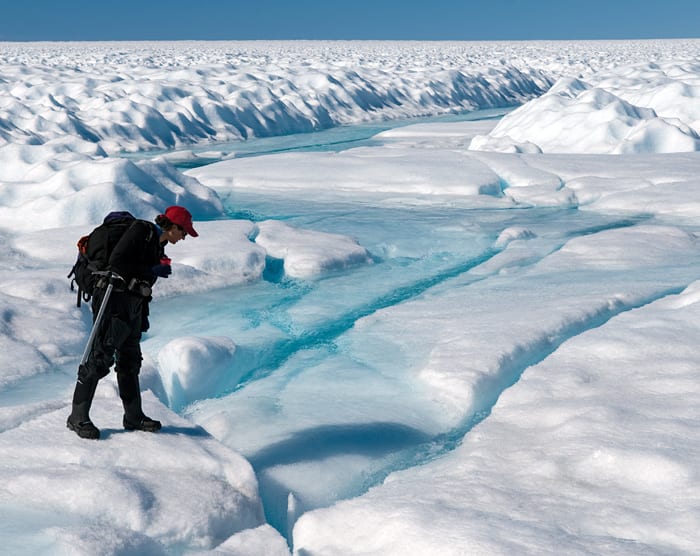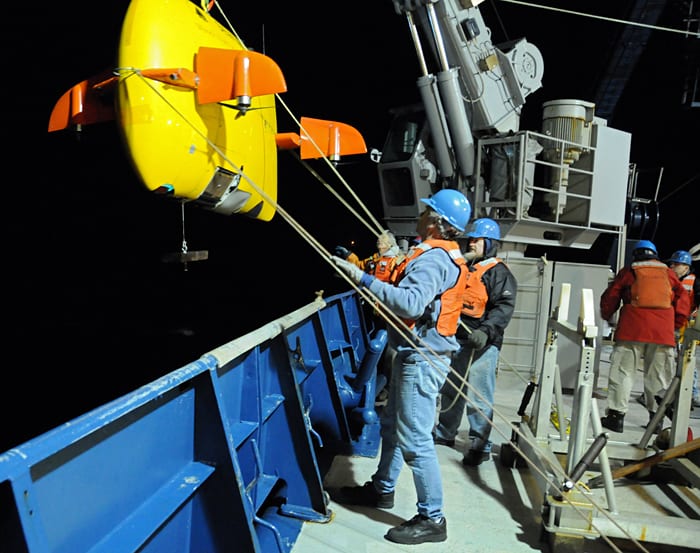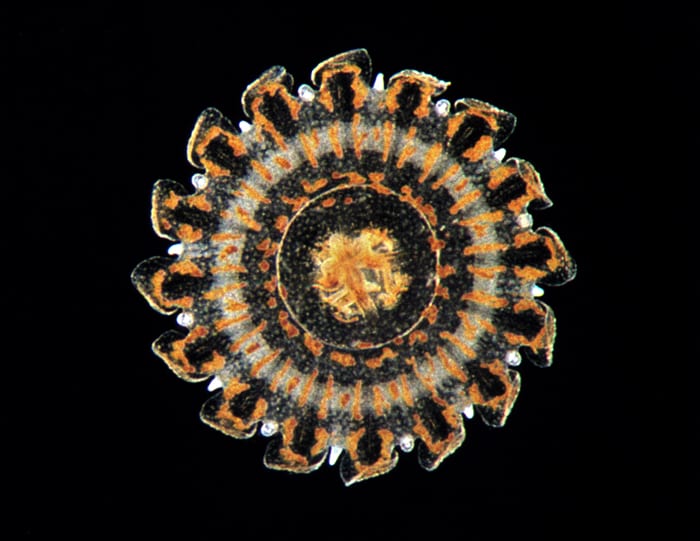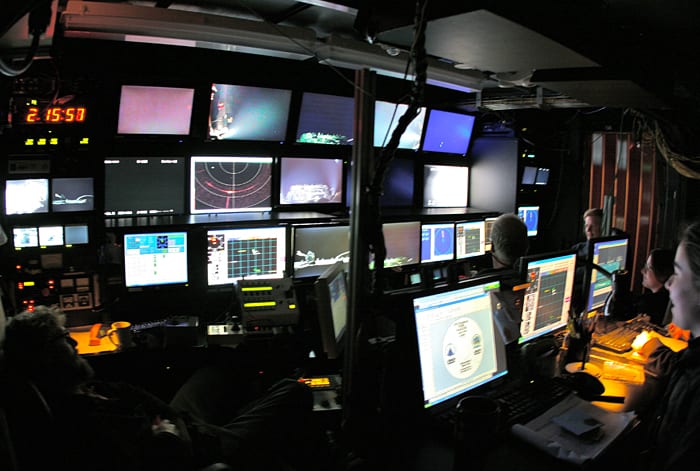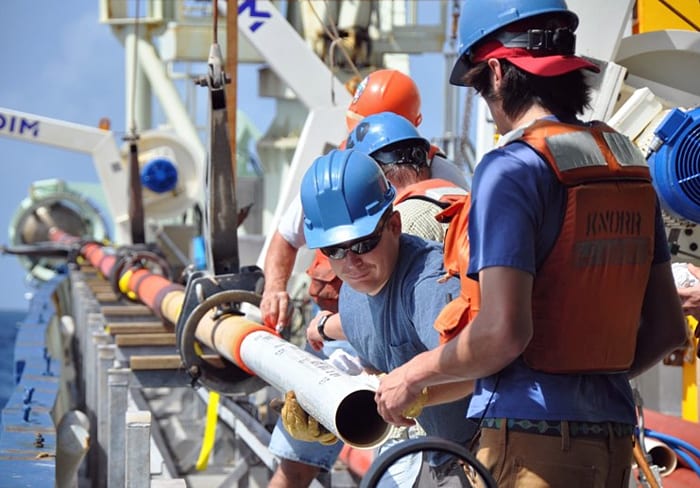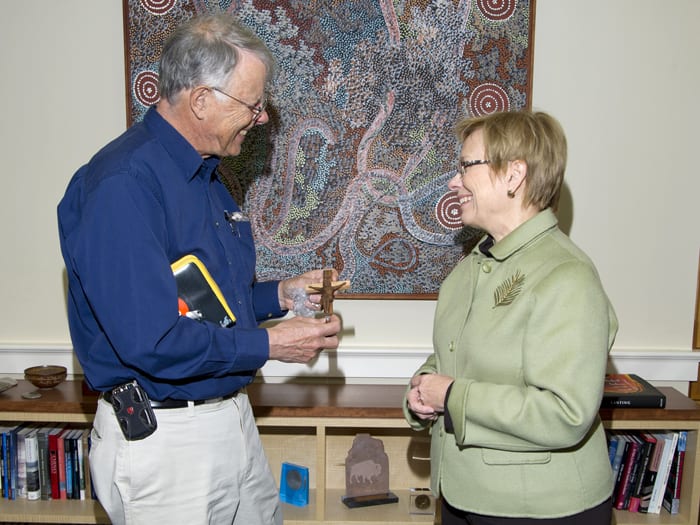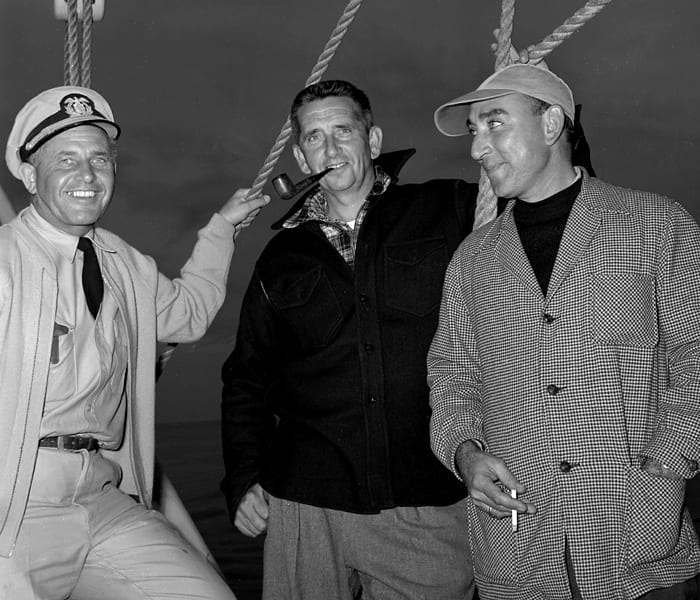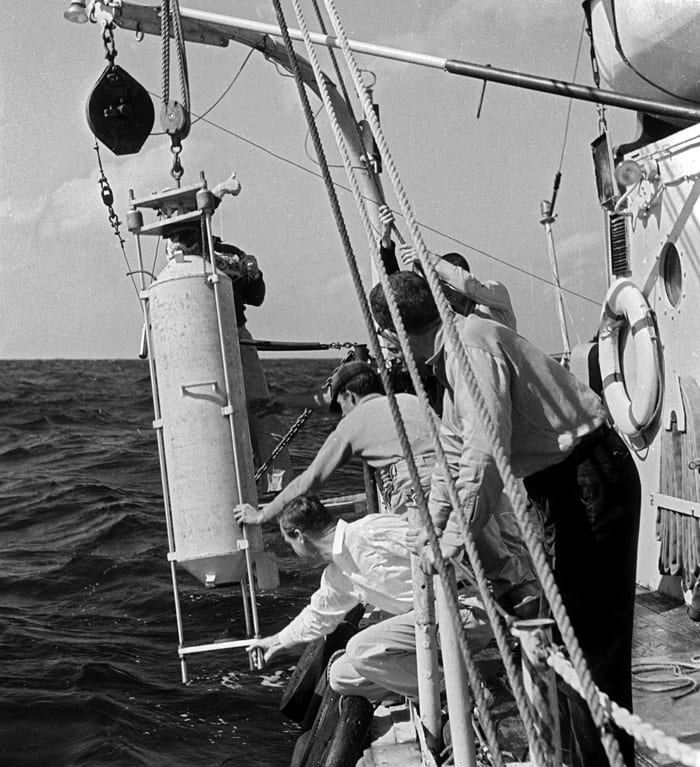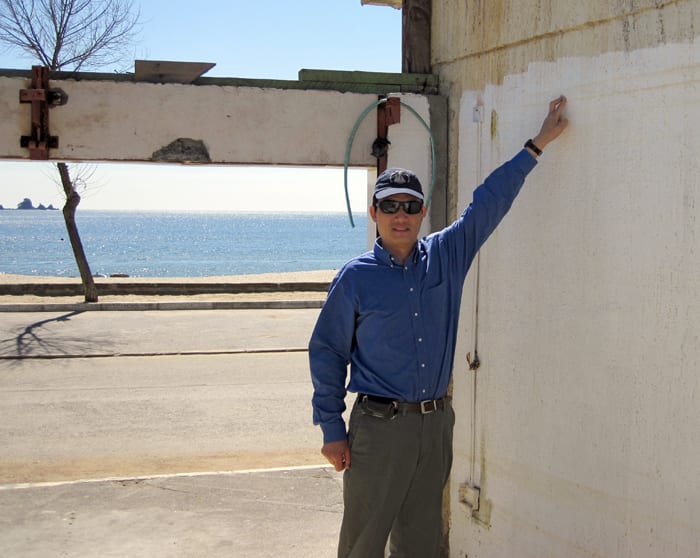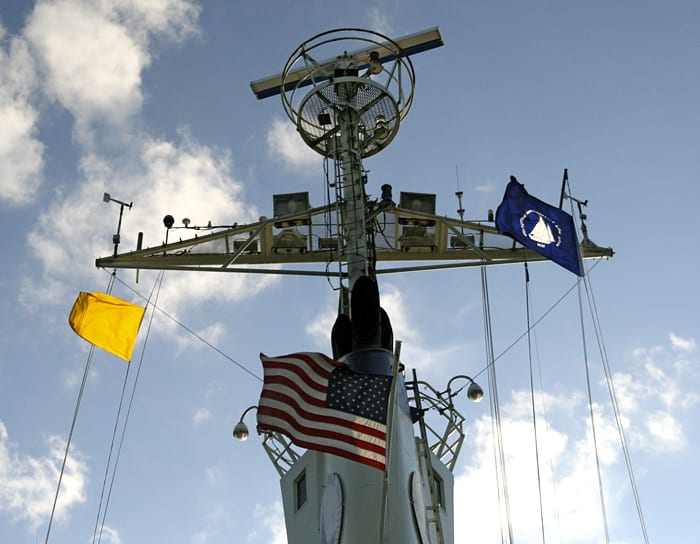Multimedia Items
When Colleagues Came Calling
Bedecked with pennants, the 105-meter R/V Yokosuka carrying the Shinkai 6500 submersible, operated by the Japan Agency for Marine-Earth Science and Technology (JAMSTEC), visited WHOI in 1994 after a joint…
Read MoreA Sight to Behold
WHOI Senior scientist and Director of the Ocean Life Institute Simon Thorrold is tagging whale sharks in the Red Sea with the support of King Abdullah University of Science and…
Read MoreMaking the Best of a Hostile Environment
WHOI’s Diana Franks and Mark Hahn, shown working in the lab, joined colleagues from New York University and NOAA to report that Atlantic tomcod living in New York’s Hudson River…
Read MoreSearch for Air France Flight 447
In the Pink
Alyson Santoro, a WHOI postdoctoral investigator in the department of Marine Chemistry and Geochemistry, checks on cultures of marine ammonia-oxidizing bacteria. The bacteria are used by Santoro and Joint Program student Carly Buchwald in…
Read MoreA Good Old Buoy
A member of the WHOI Buoy Group mounts a flashing light on a toroid, or donut-shaped, buoy prior to its deployment in the mid-1960s. The buoy was used to suspend…
Read MoreOil and Water
After an oil spill, oil in the water can interfere with instruments scientists use to study the spill and its aftermath. WHOI scientists working in the Gulf of Mexico after…
Read MoreOn-Call in the Gulf
In June 2010 WHOI investigators aboard the R/V Endeavor used the autonomous underwater vehicle (AUV) Sentry to map a large, underwater hydrocarbon plume in the Gulf of Mexico arising from…
Read More(Re)-Examining Lipids
WHOI’s Laura Sofen assists with water sampling during a recent cruise to the North Atlantic led by Associate Scientist Benjamin Van Mooy. The cruise focused on examining the role of…
Read MoreOn the Surface
With R/V Atlantis in the background, third mate Kami Bucholz (left) and Shipboard Scientific Services Group (SSSG) technician Allison Heater act as recovery swimmers for Alvin on the surface of…
Read MoreTaking a Bite Out of Lines
Deep-sea moorings face many hazards, including waves, storms, saltwater, vandalism—and hungry fish. Suspecting that fish were biting through their mooring lines, in the late 1960s the WHOI Buoy Group began…
Read MoreBack From the Deep
On October 16, 1968, two steel cables supporting Alvin snapped during deployment for Dive 308, 120 miles south of Cape Cod. The sub plunged about 15 feet (4.5 meters), then…
Read MoreA Thorny Problem
Acanthaster (the crown-of-thorns starfish) preys on coral polyps and, when numerous, can damage coral reefs. WHOI biologist Ann Tarrant collected this specimen at the Liquid Jungle Lab (LJL) in Panama…
Read MoreMedusa at Sea
The Medusa-like head of a programmable water sampler is prepared for deployment. The sampler, which is made by McLane Research Laboratories of East Falmouth, Mass., can collect up to 48…
Read MoreGreenland’s disappearing lakes
Associate Scientist Sarah Das studies the relationship between ice sheets and global climate, and that often means long walks on frozen expanses. When lakes on the surface of the Greenland ice…
Read MoreNight Launch for Sentry
In December 2010, the autonomous underwater vehicle (AUV) Sentry, was in the Gulf of Mexico helping investigate possible impacts from the Deepwater Horizon oil spill. The cruise marked the first…
Read MoreSimple, yet complex
Probably the most familiar jellies are jellyfish, such as the Nausithoe punctata (above). Jellyfish are predators that use tentacles studded with stinging cells to catch and kill their prey, usually…
Read MoreJason Central
Pilots and scientists controlling the remotely operated vehicle (ROV) Jason work from a darkened control room to monitor Jason’s instruments and video feed. The Jason control room is made up…
Read MoreA Long Look Back
Tom Lanagan of WHOI (right) and Paul Walsczak of Oregon State University (facing camera) insert a section of pipe into the barrel of the Long Core during a research cruise…
Read MoreA Piece of the Past
In January, WHOI Scientist Emeritus Sandy Williams presented the Institution’s President and Director Susan Avery with a small, wooden crucifix, given to him by an Argentinean naval architect. The architect…
Read MoreThree In One
Three captains of the original Atlantis meet on deck: (left to right) Scott Bray, John Pike, and Adrian Lane. Lane was master of Atlantis from 1956 to 1962, then WHOI…
Read MoreOceanographic Exercise
WHOI researchers struggle to prepare a Bodman bottle for deployment during a cruise on the R/V Crawford in the late 1950s. Marine chemist Vaughan Bowen helped develop the sampling bottle,…
Read MoreHigh Water Mark
WHOI geophysicist Jian Lin points to the highest watermarks on the wall of a house destroyed by a devastating tsunami following the magnitude 8.8 earthquake that struck off the coast…
Read MoreHeading Home
Flags flying, R/V Knorr steams down Vineyard Sound towards the WHOI dock and home, after crossing the Atlantic from the Azores in July 2010. A yellow “quarantine” flag, flown when…
Read More
